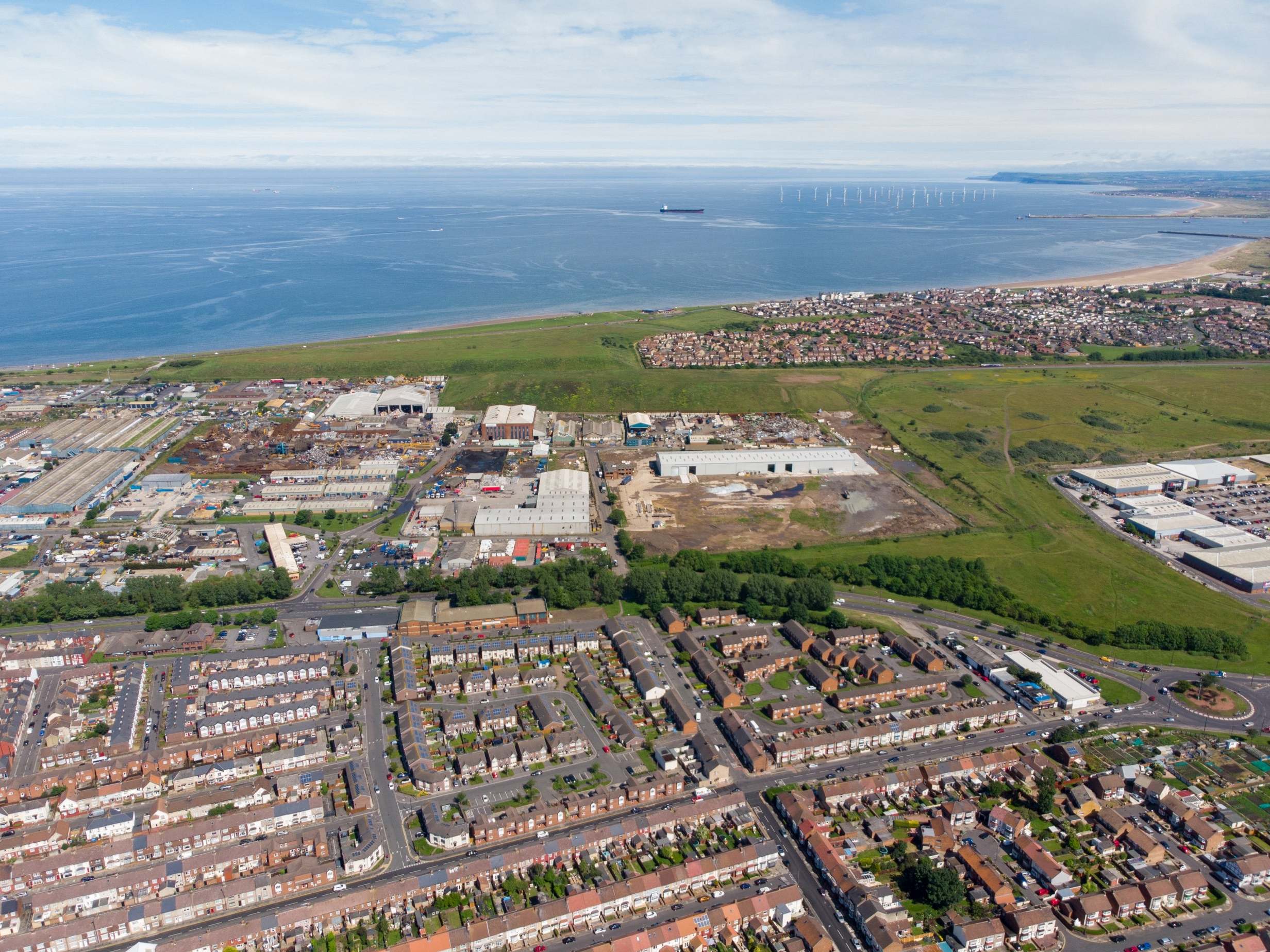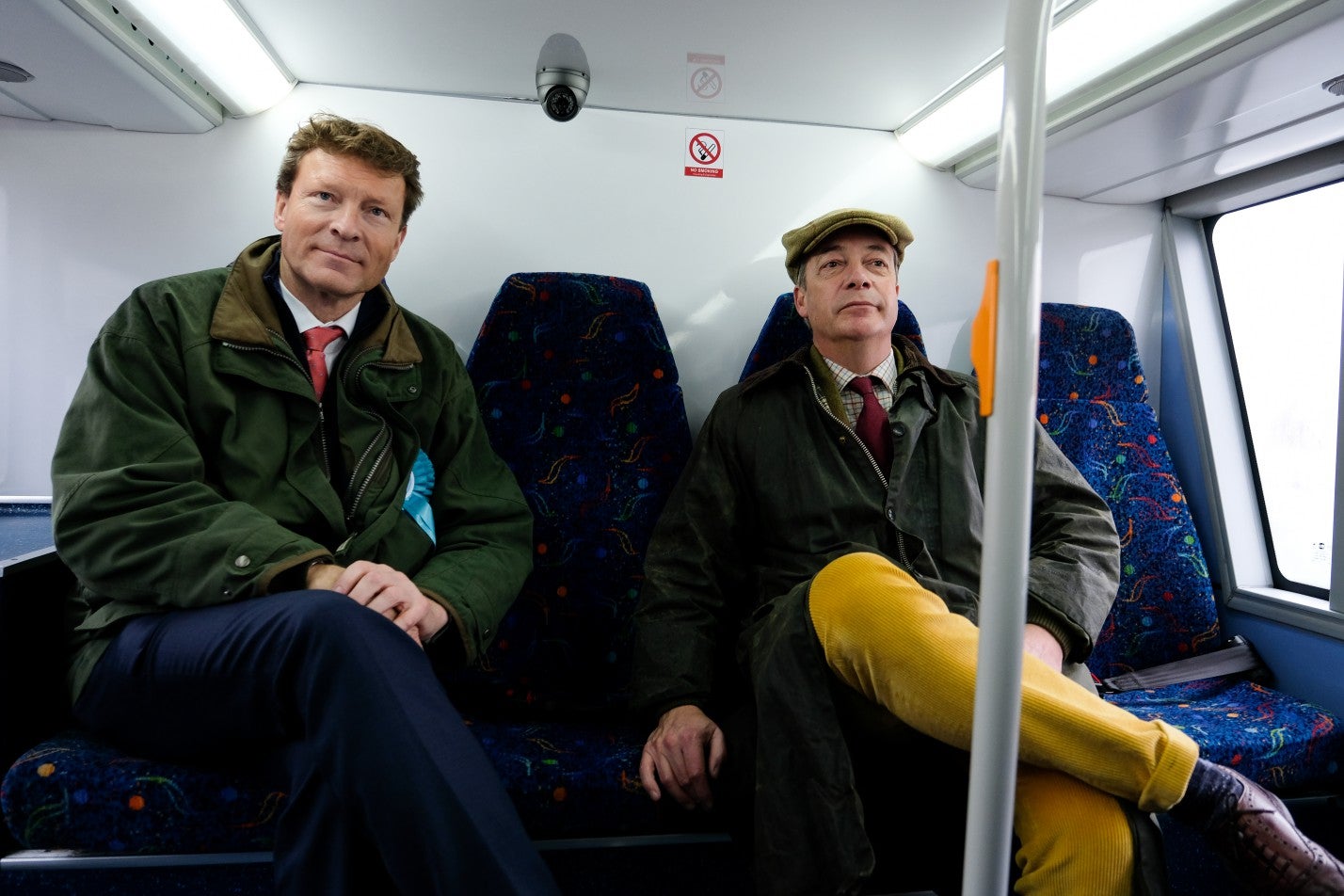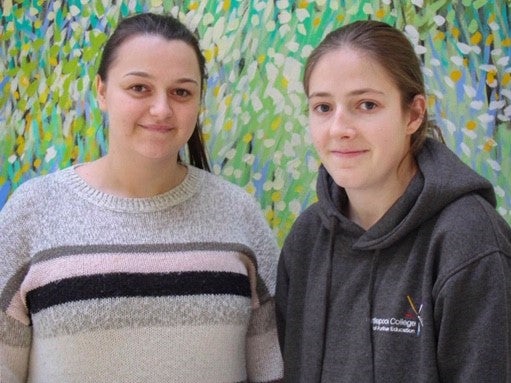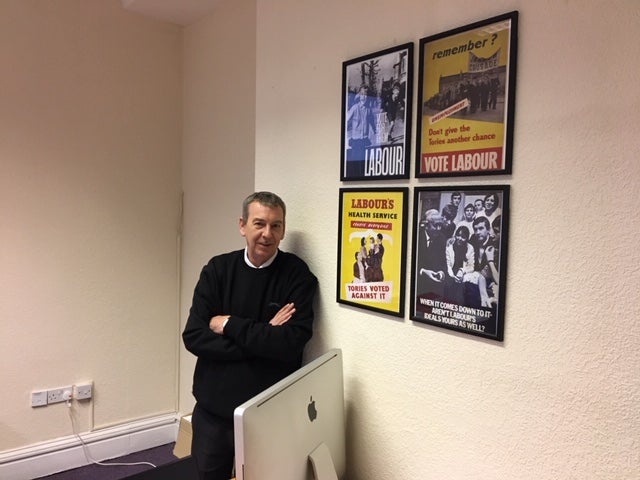Brexit-torn Hartlepool ready to howl with monkey rage on election day
‘Workington man’ has been named the symbol of a must-win constituency at the election, but there are many key battlegrounds. The Independent visits the northeast town where the Brexit Party holds the local council and is now targeting for electoral success

In 2002, long before the US elected a reality TV star as its president, or Ukraine a comedian, or Italy had a government coalition partly led by a comic, there was Hartlepool.
The northeast town foreshadowed global populism when, more than a decade earlier, it voted for a monkey as its directly elected mayor. Or, at least, a man in a monkey suit.
H’Angus – the local football club’s mascot – won office by offering every school child a free banana.
Then four years later, he won a second term – with an increased majority. And then a third. Only in 2013, when the position of elected mayor was scrapped, did he lose power.
“To be fair to Stuart [Drummond, the man in the outfit], once he was elected, he took it seriously and did an all right job,” says Shane Moore, the current leader of Hartlepool Borough Council. “But if you’re asking [why he won in the first place], I think people were fed up. They were disillusioned.”
Seventeen years on, some might argue that Moore himself is another symbol of that same disillusionment: he is the leader of the country’s only local authority run by the Brexit Party.
Now, this coastal town of 92,000 people might just be about to deliver yet another howl of electoral rage at the established political order.
Nigel Farage’s outfit have made this seat their unofficial prime target in the upcoming general election.
Their thinking is that the Tories cannot win here – it has not been blue since the Fifties – but, in a town that voted 69.6 per cent in favour of leaving the EU, they, the Brexit Party, can.
They have parachuted their biggest name – Nige excluded – into the contest. Richard Tice, party chair and property tycoon, is attempting to wrest the constituency from the grasp of Labour incumbent Mike Hill.
All of which might mean this one-time Labour certainty – one of the safest bricks in the party’s so-called red wall – has something which it has not had for decades: a real contest.
Or certainly Moore thinks so.
“If voters want someone other than a Labour MP then for the first time, certainly in my lifetime, we are offering a real alternative,” the 37-year-old says, seated in his office in the council’s sprawling civic centre. “The Tories can’t win here but we can, so I’m asking people ‘Lend us your vote’.”
Tice himself may be an outsider (a “soft southern rich boy” as Mike Hill later calls him) but, say supporters, he can both help get Brexit done and bring in much-needed investment.
“He will create jobs, and that’s what the town needs,” reckons Moore, a father-of-two and tanker driver by profession. “He will come in with fresh eyes that allow him to get things done.”
Precisely how he will do that remains a moot point – although not one Tice is bothering to get bogged down with.
“I’ve got a track record of succeeding in fixing things and making things happen,” the 55-year-old told the Hartlepool Mail when asked. “Where there’s a problem, find a solution.”
Thanks for clearing that up, then.

I’d like to ask him about this myself, of course, but he’s nowhere to be found. The rumour is that the millionaire launched his bid here, did a bit of door-knocking and then hot-footed it back down south to leave local footsoldiers doing the graft.
Can’t be true. Can it? On three separate days, I request to meet Tice in Hartlepool. I’ll join him campaigning any time that’s convenient, I say. And on three separate days the reply comes back that, sorry, he’s not available but he is definitely – definitely, definitely, definitely – in town.
So: make your minds up.
Either way, whether Hartlepool is actually as keen on the Brexit Party as it is on Brexit remains open to question.
Neither Moore or his nine fellow BP councillors were actually elected under the party ticket. All were voted in as independents and then shifted, en masse, in September.
More pertinently, perhaps, people here appear surprisingly sceptical of Farage himself. A common – though not universal – view emerges that he and Tice are using the town for their own political ends.
“I wouldn’t trust them as far as I could throw them,” says Christine Morris. “And that’s not far, because I’m on the sick.”
We are talking over cigarettes on the steps of the town’s 19th century Grand Hotel. I’ve come to the venue’s bar because this is where Farage officially launched the party’s election strategy of fielding candidates only in Labour-held seats.
“He came, had a quick walk round, then off he went,” spits Morris, 48, herself an ardent Leaver.
“I heard he had a pint in the King John’s,” notes Mark Herbert, 31.
“I heard he didn’t drink it all,” comes a reply from another smoker listening in.
There is momentary silence as this revelation – true or not – is contemplated. “No good,” concludes Herbert after a second.

Hartlepool, it should be said, has much going for it.
Living here means you are a seagull’s leap from some of the north’s most beautiful coast and within commuting distance of both Newcastle and York. In the town itself, the marina has been transformed into a hub of bars and restaurants, while town landmarks include the prestigious Northern School of Art and the BIS creative industries hub, recently opened in the restored general post office.
But it is also a town where a civic map entitled “Places Of Interest” includes the local Asda.
The past 50 years have not been kind. The town’s shipyards closed in the Sixties; recession decimated its steel industry in the Seventies; and Margaret Thatcher finished off the nearby collieries in the Eighties. Austerity has been the latest disaster. Spending levels fell by a third between 2010-17, while the local hospital’s A&E was shut down and the police force cut to such levels that, in 2018, it was revealed only 10 officers were on duty at any one time in the entire town.
“It’s a mess and has been for years,” says Dorothy Scott. “And it doesn’t matter who we vote for, it doesn’t change.”
She is running a Christmas stall in the Middleton Grange Shopping Centre (third biggest mall in the northeast, the signs proudly declare), where passers-by can buy a bauble in aid of the local Alice House Hospice.
But the festive spirit is soon lost at mention of the election.
Seventy-year-old Scott voted Brexit – “because I’m sick of Europe telling us what to do” – but is now unsure who to plump for at the polls.
“I could never go Tory,” the retired sewing machinist notes. “My father would turn in his grave. So maybe the Brexit Party, but all they have is one policy.”
She is a regular user of the NHS. “Which makes me think Labour,” she says. “I don’t know. I’ll decide at some point.”

Across the road at the Hartlepool College of Further Education – a 3,500-student behemoth in the heart of town – ambassadors Leah Cornforth and Chloe Harper are similarly undecided.
“I’d like to become a prison officer,” says 20-year-old Chloe, who is studying a foundation degree in public services. “So, maybe the Conservatives because I think they’re saying they’ll increase numbers. But there’s that thing, isn’t there? Do you really want to be a Tory voter?”
Leah, 20, nods. She’s the same but with Brexit. “I want it done but I don’t want Boris Johnson,” she says. “I’ll probably just end up going Labour.”
It is a common refrain.
Hartlepudlians, it seems, are contemplating the Brexit Party and, in some cases, the Tories – those I speak to decidedly do not want a second European referendum – but, as often as not, they come back to the same conclusion: they will, they say, probably just end up going Labour.
This clearly isn’t what Tory candidate Stefan Houghton – a party worker and councillor in nearby Stockton – wants to hear. “Those tribal voting patterns are changing,” he insists. “Labour keeps letting Hartlepool down.”
But it is also probably not the kind of response Mike Hill wants either.
Sitting in his office in the town’s South Road, the Labour candidate appears dejected when I relay what I’ve been hearing on the streets. “We have to go out,” he says, “and make the positive case for voting for us.”
He himself does this case today by zipping through various policies: greater funding for social care, free broadband, protection of the NHS, and a vast widening of green industry.
“This region can lead the world in green power just like it helped lead the world with the industrial revolution,” the 56-year-old, who was first elected MP here in 2017, says.
The former union official, who moved to Hartlepool 20 years ago, reckons Jeremy Corbyn’s position on a second EU referendum – offering one but staying neutral – has resonated with voters.
“People understand the position now,” he says. “I can tell them Labour will get a deal to leave and then, if I am MP, I will be able to campaign to approve it.”
How is Corbyn going down on the doorstep, I ask? “People mention him,” says Hill. “More than they did in 2017.”
In a positive way? “Well...” he thinks for a moment. “They mention him. In different contexts.”
If the leader is a difficult subject, so too is the one that comes next.

Hill, himself, is currently being investigated by both parliamentary authorities and police over accusations – strenuously denied – of sexual harassment. Having temporarily withdrawn the whip, Labour is now standing by him. But I wonder, given the allegations remain live, was it right to stand?
Yes, it was, he says. No, he will not comment further. “All I’ll say is if that’s all the Brexit Party has to throw at me, they’re struggling,” he adds.
As I begin to leave, I am reminded of H’Angus the Monkey mayor.
Hill is drinking from a cup with a cartoon ape on it. In Hartlepool, you’re never far from such an image. Simians hang in art galleries and are displayed on locally-made T-shirts. On the marina, there is a stone monkey on a plinth.
How come? Because legend has it that townsfolk captured and hanged a monkey during the Napoleonic Wars. The story goes that, having never seen a Frenchman, they assumed the animal – stowed on a shipwrecked boat – was a French spy.
Hence, the name H’Angus.
That the town has embraced such a legend is typical of its self-deprecating sense of humour.
Except no one here really thinks people were laughing when they voted in that monkey mayor 17 years ago. Rather, it was – like Trump and Zelensky and Grillo perhaps – a collective, if unwitting, cry for change; an attempt to rupture a political system that was no longer working for people.
The problem is, it still isn’t working. The same disquiet and disenfranchisement remain simmering away here. Issues around unemployment, housing and crime remain as unaddressed now as they were back then. A wise government, whatever form that takes, should perhaps take heed: if the current political system cannot provide solutions soon, voters may start looking for them elsewhere.
Join our commenting forum
Join thought-provoking conversations, follow other Independent readers and see their replies
Comments